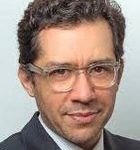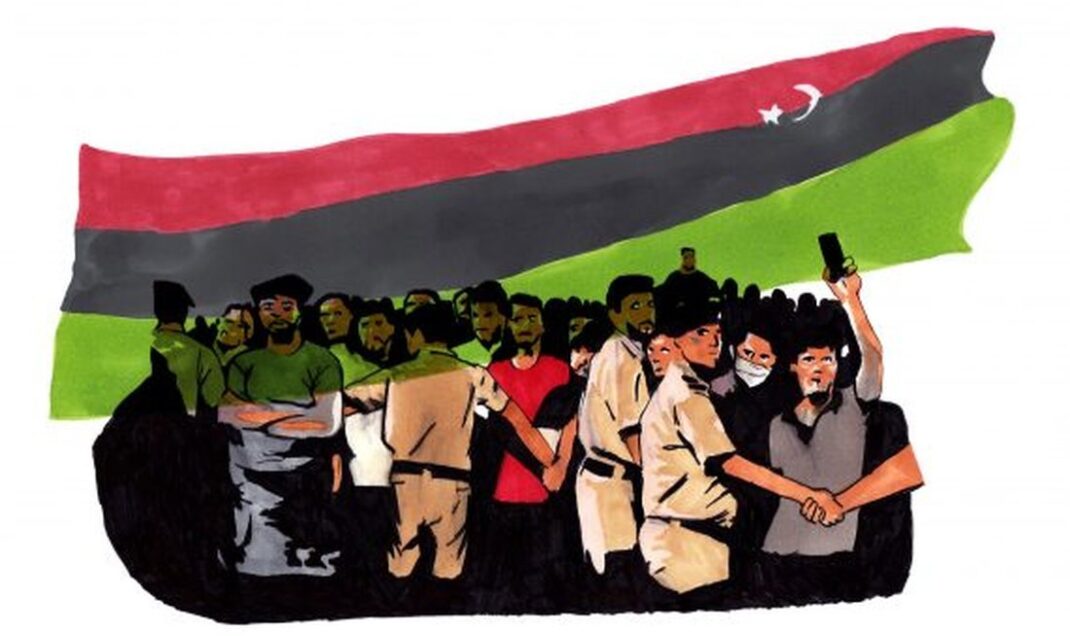Jalel Herchaoui

1.5 The Libyan Political Dialogue Forum is born
Keen to exploit the cooldown ushered in by concerted Turco-Russian cohabitation, the U.N. intensified its diplomatic efforts in the summer of 2020. This began by first insisting that relevant parties make formal ceasefire declarations.
From there, the U.N. returned to a playbook developed as part of an earlier mediation effort, January 2020’s Berlin Summit. There, the primary takeaway had been plans for the establishment of a new Presidential Council and the formation of a new interim government.
The latter was to be tasked with reunifying the institutions first, and, then, “paving the way to end the transitional period through [the holding of] parliamentary and presidential elections.”
As part of its bid to implement the Berlin outcomes, the U.N. launched the Libyan Political Dialogue Forum (LPDF) in late October 2020. Seventy-five Libyan delegates were handpicked for participation. And having learned from the failure of Macron’s attempt at delivering elections in 2018, U.N. planners sought to protect the new peace process from the quagmires of institutional partition:
Rather than fully depend on the willingness of the HoR and the HSC to agree on a common constitutional arrangement for elections, the U.N. assigned the seventy-five delegates invited to take part in the LPDF ultimate responsibility over the matter in case the two chambers failed to agree by February 2021.
1.6 The Final Rough Stretch Before the December 2021 Deadline
Soon after the LPDF’s in-person meetings started in Tunis on November 9, 2020, delegates came together around the idea of announcing an election date. After a vote, the LPDF decreed that elections for both the parliament and presidency would be held on December 24, 2021, the 70th anniversary of Libyan independence.
Notably, the highly symbolic deadline was six months in advance of what the LPDF roadmap had specified at first. Truncating the timeline in this way unnecessarily added to the difficulty of an already-difficult agenda.
If that seemed to settle the question of electoral timetable, the next issue to be handled was that of appointing a new interim government. A favorite in this context was Fathi Bashagha, the Minister of Interior in the Tripoli government and a top leader in the Turkish-backed armed resistance against Haftar’s aggression on the capital.
Soon after that offensive on Tripoli collapsed in 2020, Bashagha struck a political deal with Haftar ally Saleh. By doing so, Bashagha and the HoR Speaker hoped to become prime minister and president, respectively, in February 2021. But the LPDF delegates elected Abdulhamid Dabaiba prime minister — as well as a three-person Presidential Council led by Mohammed al-Menfi, an eastern-Libyan native like the scorned Saleh — surprising most observers.
The following month, the HoR endorsed Dabaiba’s cabinet with a vote of confidence. In doing so, the parallel eastern executive branch came to a peaceful end. Importantly, however, the HoR did not recognize the new Presidential Council, nor did it formally acknowledge the legal status of the seventy-fivemember LPDF.
Moreover, Haftar’s armed coalition did not recognize Prime Minister Dabaiba. The last matter to resolve was the legal framework for the elections themselves. When deliberations on the constitutional basis eventually came before the LPDF, paralysis took hold amongst the seventyfive delegates.
At the root of this were debates around the Presidency. The first centered on whether presidential elections should indeed be held in synchrony with the parliamentary elections of 2021. The second concerned the eligibility of dual-nationals and active-duty military officers for the presidential contest.
As the LPDF grappled with its internal divisions, HSC president Khaled alMeshri embarked upon a campaign which consisted in advocating for the holding of a constitutional referendum in lieu of the sought-after elections.
This arguably was a disguised means of stonewalling and boosting the probability of indefinite postponement. Only muddying things further, in July 2021, The New York Times Magazine published the first picture in years of Saif al-Qadhafi — the most famous among Muammar’s still-alive sons — amid rumors he might himself have eyes on the presidency.
Then in September 2021, after the LPDF had failed to reach a final decision on the electoral process, Aqila Saleh — without holding a proper vote in the HoR — unilaterally issued a “presidential electoral law.” The text disregarded the LPA, which the LPDF roadmap leaned upon, and imposed a sequence wherein the presidential elections had to happen first, violating another fundamental tenet of the LPDF roadmap.
For reasons that will be discussed later, the law was also structured in such a manner as to allow both Haftar and Saleh to run for president without running the chance of losing their existing positions. One month later, Saleh then had his right-hand man Fawzi alNawri issue a “parliamentary electoral law” — again without any vote in the HoR.
Amongst other things, the law dictated that legislative elections could only occur in February 2022, at the earliest. In November 2021, Saif al-Islam Qadhafi, Khalifa Haftar, Aqila Saleh, Abdulhamid Dabaiba, Fathi Bashagha, and more than another 90 hopefuls submitted their paperwork to the High National Election Commission to run for president. The three most popular candidates were also the most controversial and divisive.
Nevertheless, after a few days of legal armed stared-downs and legal confutations, almost all contentious candidates ended up being approved by the courts. With election-day just weeks away, the tensions elicited across Libya by the most visible presidential candidates proved far too much to manage.
Facing an atmosphere more charged than ever, the High National Election Commission stopped short of publishing the final list of authorized candidates in time for the designated two-week campaign season to commence. The standstill meant that the much-touted deadline of December 24, 2021 was going to be missed.
To the sadness of a great many, Libya’s general elections were postponed indefinitely
***
Jalel Harchaoui is a political scientist specialising in North Africa, with a specific focus on Libya. He worked on the same topics previously at The Global Initiative Against Transnational Organised Crime, a Geneva-based NGO, as well as at the Clingendael Institute, based in The Hague. His research has concentrated on Libya’s security landscape and political economy. A frequent commentator on Libya and Algeria in the international press, he has published in Foreign Affairs, Lawfare, Politique Étrangère, Foreign Policy, and Small Arms Survey. An engineer by trade, Jalel holds a master’s degree in Geopolitics from Paris 8 University.
____________





